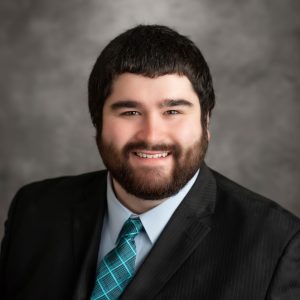Kyle Silva, MS4, is a current TIP student at the Sparrow/MSU Family Medicine Residency Program.
by Kyle Silva
Like many medical students, my journey to medicine was sparked by my family’s experiences with physicians, many of which were not positive. At a young age, I heard stories about poor bedside manner by physicians as they informed my grandmother that she had months to live. At the time, I did not understand the repercussions that this interaction would have on my family. Years later, I would lose my uncle to a treatable Mycoplasma infection because the distrust instilled in him made him too afraid to see a doctor. Seeing the ripple effect that my grandmother’s mistreatment had on my family, I made it my goal to prevent others from experiencing the same.
In light of these events, I reflect on my mom’s health journey. Having multiple specialists, my mom was often prescribed a multitude of medications that had adverse side effects. My mom would often voice her concerns, but her specialists would tell her to continue taking the medication and that a new medication they will add will blunt the side effects. My mother was on the verge of giving up on her treatments when her family physician asked her to come in for an appointment. Her PCP sat down with her, wrote down every side effect, and went through each medication she was currently taking to find alternatives. At that moment, my mother’s physician truly saw her as a whole, not just a symptom. I knew that I wanted to be this person for my future patients, and my desire to pursue a career in family medicine was solidified.
Interactions like these are not unique to my family, and the effect they have on families transcends generations. When people become distrustful of the medical system, they are more unlikely to receive preventative healthcare to avoid the onset of and manage the sequelae of chronic conditions. This is the current reality that millions of people experience daily, disproportionately affecting people who are underinsured and living in underserved areas. This is compounded by the poor health education and lack of individualized care that plague these areas. I sought out opportunities early on in my education to begin battling these disparities, volunteering at the pharmacy assistance program at CareFree Medical in Lansing. I was able to advocate for patients by working with pharmaceutical companies to get free and reduced-cost medications that they otherwise could not afford. They were finally able to focus on their health without worrying about the financial burden, and for that, they were extremely grateful and relieved. When coming up with a treatment plan for my patients, I am always reminded of these stories to help ensure that the plan I suggest is accessible and appropriate.
 These experiences have provided me with a unique lens to view medicine through, and I continue to use it in a research sense as well. I am currently exploring the use of the PHQ-9 as a screening tool in adolescents, looking for conflicting responses when completed in the presence of a parent. If adolescents intentionally alter their responses to avoid further mental health discussion, a significant diagnosis may be missed. With mental health concerns being especially prevalent in underserved areas, the results could drastically impact how I screen for depression in my future patients.
These experiences have provided me with a unique lens to view medicine through, and I continue to use it in a research sense as well. I am currently exploring the use of the PHQ-9 as a screening tool in adolescents, looking for conflicting responses when completed in the presence of a parent. If adolescents intentionally alter their responses to avoid further mental health discussion, a significant diagnosis may be missed. With mental health concerns being especially prevalent in underserved areas, the results could drastically impact how I screen for depression in my future patients.
Physicians practicing family medicine in underserved areas play a unique role in the healthcare system. With patients from all ages and backgrounds, they have the ability to substantially impact the lives of many. To do so, they must be able to provide individualized treatment to all of their patients. It is my goal to provide this standard of care to those in my community, and the TIP program would significantly jumpstart this process. Through the TIP program, I would be provided with a unique opportunity to further develop these skills. Being able to continue to work directly with those in the community, establish relationships, and learn more about the specific needs of the community, I will have the tools and knowledge I need to best advocate for my future patients.



